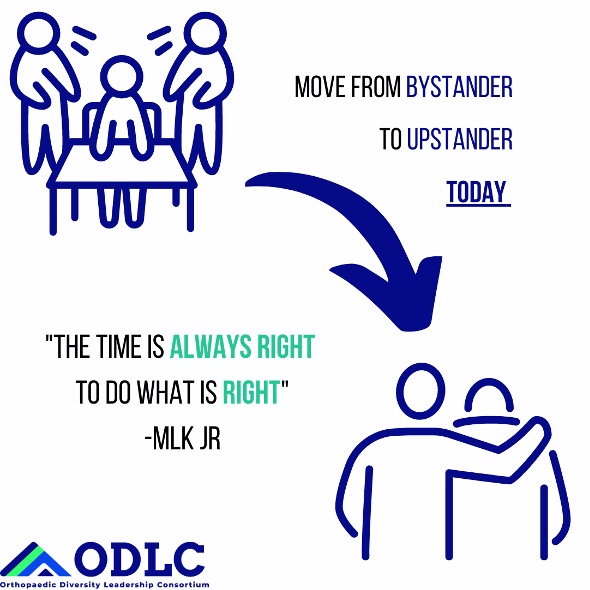Decades ago, the DEI arena gave significant attention to the “bystander effect” that occurs when the presence of others discourages someone from intervening in an emergency, against a bully, or during an assault. The greater the number of bystanders, the less likely it is for any one of them to provide help to another person in distress.
Psychologists attributed this to two critical factors: diffusion of responsibility and social influence. Over the following years, terminology to describe bystander intervention became popularized. However, what has proven to be a more effective framework is moving from a passive bystander to becoming an active UPSTANDER.
Using Stanford’s definition, an upstander is “someone who witnesses a behavior that could lead to something harmful and makes the choice to intervene to make things better.” Accordingly, every bystander faces the same choice:
Do I get involved and try to improve the situation? Or do I ignore the situation?
We have all been there. A colleague being disrespected in a meeting, an offensive joke or narrative of an individual, devaluation of someone’s abilities, targeted humiliation, and outright statements rooted in bias and/or any of the “isms,” – we have been in places and spaces faced with that pivotal choice to make.
But, what do we do when we have been conditioned to keep our heads down and not talk about the difficult stuff? What if our social and professional positions will be threatened if we act in a way that is different than our peers? Is it even our job to intervene?
To answer these questions, take the time to dig into the 5 D’s of Upstander Intervention (Distract, Delay, Delegate, Direct, and Document) and add them to your box of “Power Tools” so that you can access them when necessary and influence others to do the same.
Spoiler alert – YES, it is our job to intervene.
Upstander intervention is where the rubber meets the road when it comes to DEI commitments and distinguishes true allyship from surface-level activism. Any progress made in equity and inclusion can be rapidly undone if we hide from our responsibility to bring civility and humanity to our environments.


